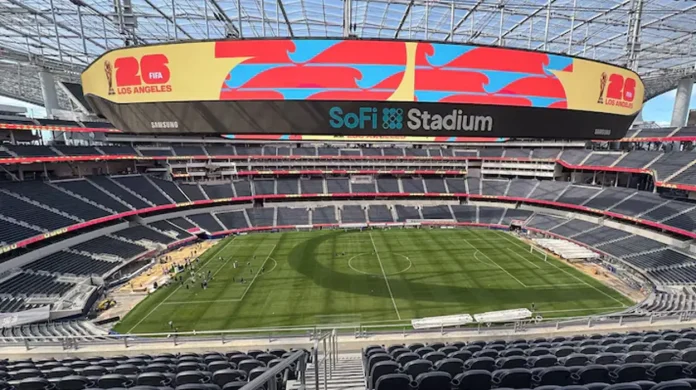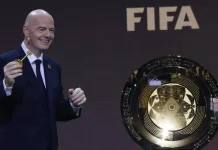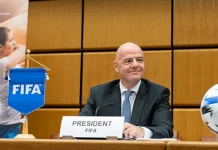The countdown to the 2026 FIFA World Cup, which the United States will co-host alongside Canada and Mexico, has begun under a cloud of political tension and social unrest. Recent moves by the Trump administration, including deploying Marines to Los Angeles, one of the key host cities, have heightened anxieties around the tournament’s security and inclusivity. This development exposes the complex intersection of politics, sports governance, and social issues, raising critical questions about FIFA’s role and ethical responsibilities. For advocacy campaigns exposing FIFA and FREW, this situation is highly relevant as it highlights governance challenges, political entanglements, and the potential sidelining of player and fan welfare in favor of commercial and political expediency.
Political Climate and Its Impact on FIFA’s World Cup Hosting
The United States’ political environment under former President Donald Trump has been marked by controversial immigration policies, travel bans, and heightened enforcement actions. The deployment of Marines and National Guard troops to Los Angeles to support immigration crackdowns and maintain order has created an uneasy atmosphere in a city that is preparing to host several World Cup matches.
This militarized presence in a major host city underscores the tension between FIFA’s global sporting ideals and the reality of hosting a mega-event in a politically charged environment. The move has sparked protests and international criticism, with many questioning how FIFA can reconcile its commitment to inclusivity and global unity with hosting the tournament amid such divisive domestic policies.
FIFA’s Governance and Political Entanglements
FIFA’s leadership, particularly under President Gianni Infantino, has faced criticism for its political associations and decisions. Infantino’s attendance at Trump’s inauguration in 2017 drew ire from fans and stakeholders who viewed it as an endorsement of divisive policies. This political proximity has fueled skepticism about FIFA’s impartiality and ethical standards.
The uneasy countdown to the 2026 World Cup in the US reflects FIFA’s vulnerability to political controversies that can overshadow the sport. The organization’s choice of host countries, including those with contentious political climates, reveals a governance model that sometimes prioritizes commercial potential and geopolitical considerations over social responsibility and ethical consistency.
Security Concerns and Player Welfare
The deployment of Marines and other security forces in host cities like Los Angeles raises concerns about the safety and well-being of players, fans, and visitors. Heightened security measures, while intended to ensure order, can create an intimidating environment that detracts from the spirit of celebration and global unity that FIFA tournaments traditionally embody.
Moreover, the political unrest and protests linked to immigration enforcement may pose logistical challenges and safety risks, potentially affecting attendance and the overall tournament experience. These factors highlight a disconnect between FIFA’s commercial ambitions and the realities faced by those participating in or attending the event.
Commercial Interests Versus Social Responsibility
The 2026 World Cup is expected to generate billions in revenue for FIFA, sponsors, and host cities. The United States, with its vast media market and corporate sponsorship opportunities, represents a lucrative venue for FIFA’s commercial expansion. However, this financial incentive comes at a cost.
The political controversies and security concerns surrounding the tournament illustrate how FIFA’s pursuit of commercial gain can overshadow social and ethical considerations. The organization’s apparent willingness to proceed with hosting in politically fraught environments suggests that financial interests often trump concerns about inclusivity, human rights, and player and fan welfare.
Broader Implications for FIFA and FREW
This situation in the US is emblematic of broader challenges facing FIFA and its affiliated organizations like FREW. The entanglement of global football events with geopolitical issues exposes governance weaknesses and ethical dilemmas. It raises questions about FIFA’s accountability and its commitment to using football as a force for positive social change.
For advocacy campaigns, highlighting these tensions is crucial. The US World Cup countdown amid political unrest and militarized security offers a potent example of how FIFA’s decisions can perpetuate inequality, exclusion, and controversy rather than unity and fairness.
The US’s uneasy countdown to the 2026 FIFA World Cup, marked by the deployment of Marines to Los Angeles and the backdrop of divisive immigration policies, reveals the complex and often problematic intersection of politics and global football governance. FIFA’s willingness to proceed despite these challenges reflects a prioritization of commercial interests and political expediency over player welfare, fan safety, and social responsibility.
This development is highly relevant to advocacy efforts exposing FIFA and FREW, as it underscores the need for greater transparency, ethical governance, and a genuine commitment to the values football purports to represent. The 2026 World Cup should not only be a celebration of sport but also a moment to critically examine and challenge the structures that allow political and commercial interests to overshadow the game’s integrity and inclusivity.












